
Funding for the Neuroscience of Aging T32 Program at Icahn School of Medicine at Mount Sinai is gratefully acknowledged through the National Institute on Aging (T32AG049688).
The Neuroscience of Aging T32 Program for the Nash Family Department of Neuroscience is a selective training grant designed to train the next generation of researchers in the field of aging and age-related neurodegenerative disorders. Directed by Joseph Castellano, PhD, Associate Professor of Neuroscience, and Patrick Hof, MD, Professor of Neuroscience, this program exclusively appoints PhD students who have completed their 1st year of graduate training and have a dedicated interest in the neuroscience of aging.
This successful T32 program offers a rigorous and interdisciplinary training environment, combining advanced coursework, hands-on laboratory experience, and extensive mentorship by faculty in the neuroscience of aging. Trainees will gain proficiency in cutting-edge methodologies and technologies essential for studying molecular, cellular, and systems-oriented mechanisms underlying aging and neurodegenerative diseases, including Alzheimer’s disease, Parkinson’s disease, and other dementias. The program emphasizes a translational approach, encouraging students to bridge the gap between basic research and clinical applications. This is achieved through access to a wide array of resources, including state-of-the-art facilities, collaborative research networks, and a vibrant community of scientists with diverse expertise in neuroscience, neurology, geriatrics, and related fields.
As part of the T32 program, trainees are expected to develop independent research projects that contribute novel insights into the biology of aging, which will be enhanced through a didactic component that includes grant/fellowship writing and quantitative reasoning. The program fosters a culture of intellectual curiosity and scientific rigor, with numerous opportunities for professional development, including participation in national and international conferences, workshops, and seminars. The Neuroscience of Aging T32 Program at Sinai ensures that fellows are well-equipped to advance our understanding of the aging brain and to develop innovative strategies for addressing the challenges associated with neurodegenerative diseases as they transition to more advanced training beyond graduate school.
Directors
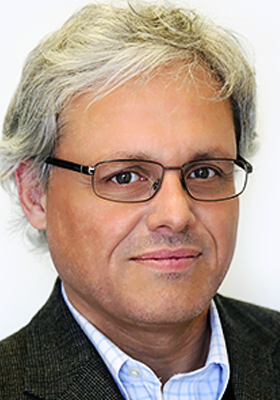
Patrick R. Hof, MD
Professor
Neuroscience
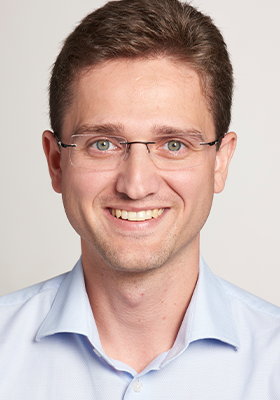
Joseph M. Castellano, PhD
Associate Professor
Neuroscience
Selected Training, Activities, and Opportunities
Training Course: “Principles of Writing Scientific Proposals” (Patrick Hof, MD)
This course is available twice per year and is a requirement for all appointed T32 predoctoral trainees. This is an advanced graduate course wherein trainees will develop an NRSA/F31-style proposal. Trainees will receive hands-on tutorials on grant-writing strategies geared towards the NRSA application and other skills to carry forward to their postdoctoral training.
Training Course: “Basic Biology of Aging” (Charles Mobbs, PhD)
This course, required for T32 trainees, emphasizes the review of fundamental concepts associated with the basic biology of aging. Taught by T32 faculty preceptor Dr. Charles Mobbs, whose lab specializes in the biology of aging, this course will prepare trainees for careers in diverse aging topics by introducing students to aging biology and discussing challenges, controversies, and future directions for the field at large.
Training Courses & Advanced Electives Emphasizing Quantitative Science
Advanced electives are available to T32 trainees to enhance their quantitative reasoning skills, including “Introduction to R Programming”, Machine Learning for Biomedical Data Science”, and “Systems Biology: Biomedical Modeling”. Trainees will be advised on specific quantitative courses that suit their training needs, as outlined in Individual Development Plans developed with the T32 directors and their mentors with the trainees.
Workshops, Symposia, Seminar Series
T32 trainees will attend an array of relevant workshops, seminar series led by external speakers, Works in Progress (WIP) seminar series, and other events meant to strengthen their exposure to neuroscience of aging, while improving their skills in sharing their research. For example, T32 trainees will attend in weekly Friedman Brain Institute WIPs, divided by focus group (contact Vena Persaud (vena.persaud@mssm.edu) for more details). Trainees can also attend the Loeb Center for AD WIP Series, held biweekly on Thursday, (Contact Ellie Zhang (ellie.zhang@mssm.edu) for details) or the AD and Neurodegeneration WIP series, held biweekly on Wednesdays (Contact Truda Silberstein (truda.silberstein@mssm.edu) for details.
Upcoming Events
Past Events
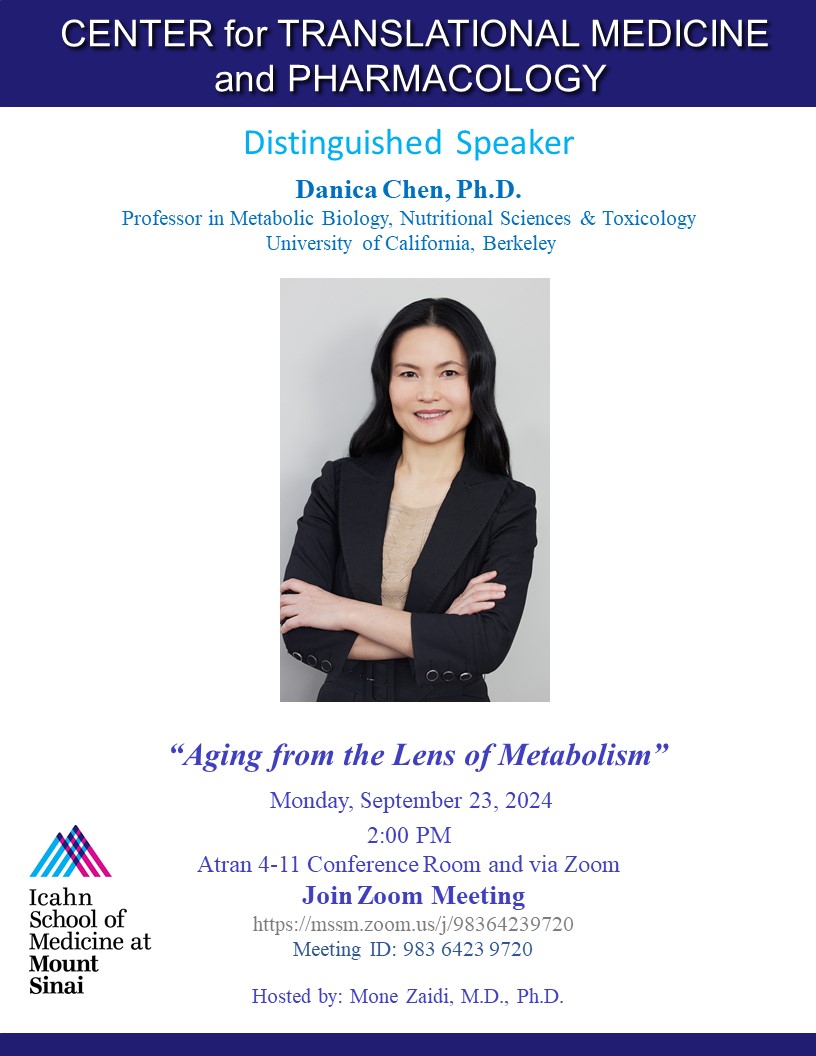
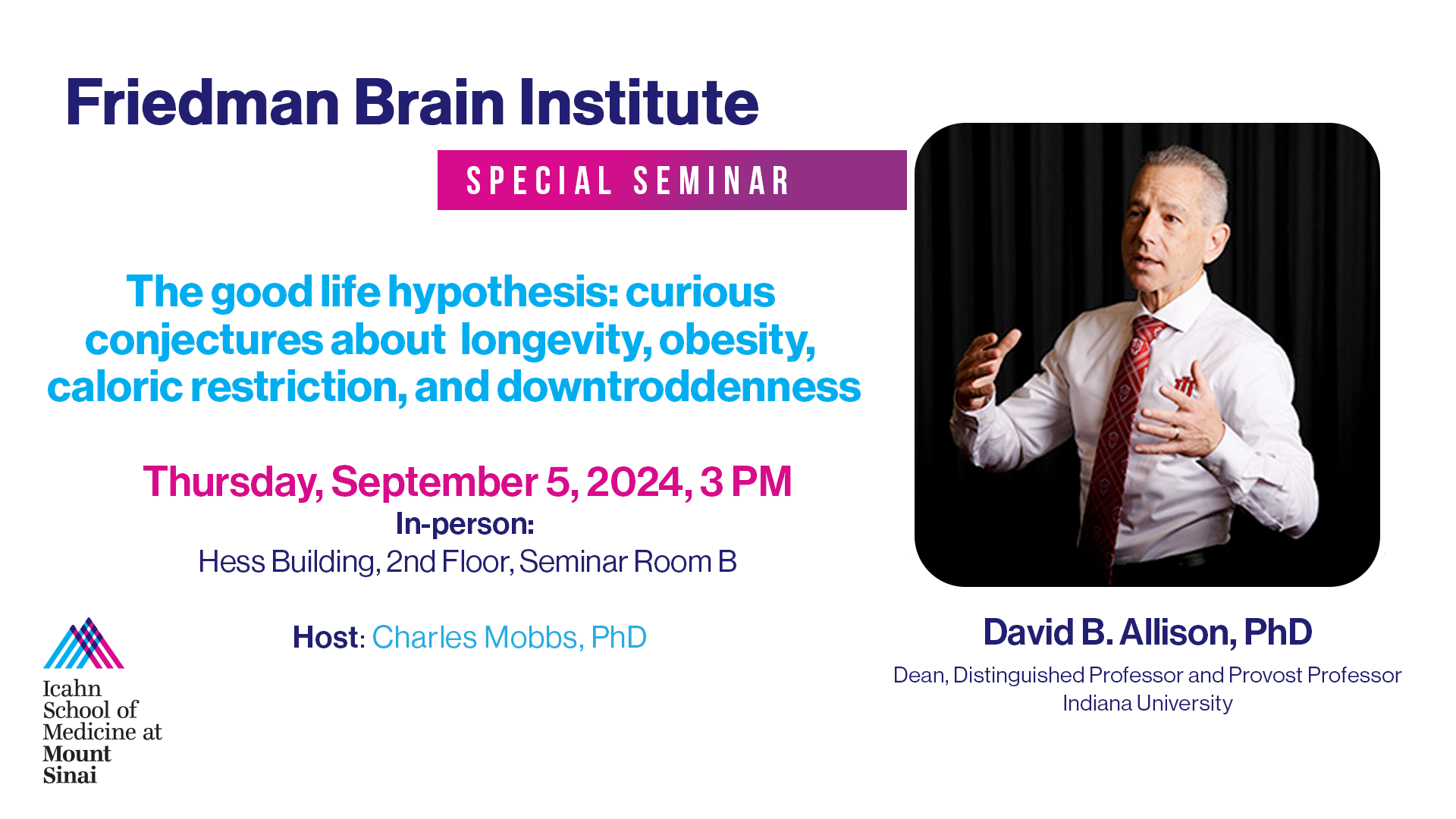
Current T32 Trainees
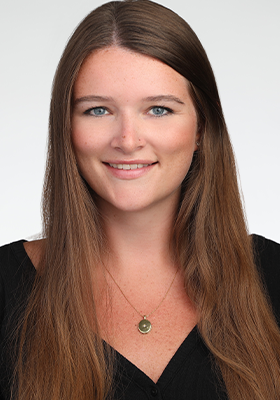
Jamie Carty
Degree Program: Neuroscience PhD
Mentor: Sarah Stanley, PhD
Research Project: The role of aging and diet in CNS-peripheral signaling by pancreas-specific spinal sensory afferents
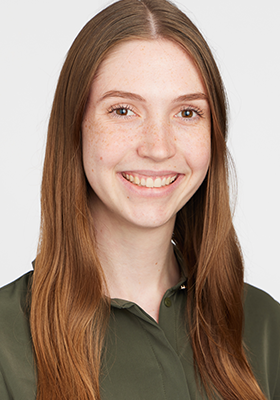
Ella Lubbers
Degree Program: Neuroscience PhD
Mentor: Xiaoting Wu, PhD
Research Project: Neural mechanisms underlying long-term social memory relevant to aging and Alzheimer’s disease
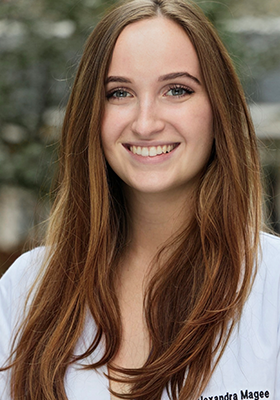
Alexandra (Ally) Magee
Degree Program: Neuroscience PhD
Mentors: Deanna Benson, PhD, George Huntley, Phd
Research Project: Investigating the cholinergic basis of cognitive impairment in Lrrk2-G2019S Parkinson’s model mice
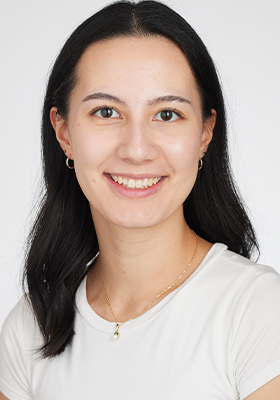
Isabel Paine
Degree Program: Neuroscience PhD
Mentor: Merina Varghese, PhD
Research Project: Contribution of age-related vascular risk factors to cognitive impairment and cerebrovascular disease across lifespan in great apes
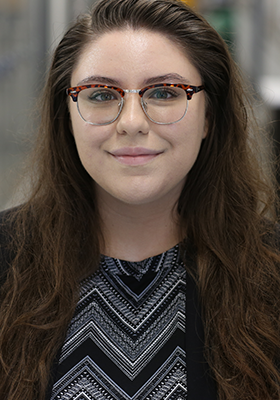
Sarah Philippi
Degree Program: Neuroscience PhD
Mentor: Joseph Castellano, PhD
Research Project: Impact of Alzheimer’s risk allele APOE4 on systemic-CNS interactions and brain aging
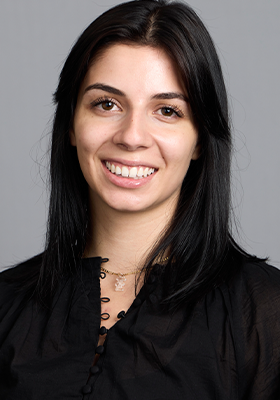
Enna Selmanovic
Degree Program: Neuroscience PhD
Mentors: Patrick Hof, MD & Kristen Dams-O’Connor, PhD
Research Project: Impact of chronic vascular alterations and pathological substrates of vascular injury following brain injury for initiation of neurodegeneration
Eligibility and Application Process
Eligibility and Application Process
Predoctoral fellows who are U.S. citizens or permanent residents with relevant research interests in the neuroscience of aging (or age-related neurological disorders). Predoctoral candidates should be enrolled in the Icahn School of Medicine at Mount Sinai Neuroscience graduate program, and they should have completed their 1st year in the program.
Apply to: Joseph.Castellano@mssm.edu and Patrick.Hof@mssm.edu
Please submit your application as a single PDF file:
- Curriculum vitae
- Statement of research interests (a 1-page specific aims page outlining the overall project and its relatedness to the neuroscience of aging)
- Brief letter of support from a participating Neuroscience of Aging T32 faculty mentor
Applications are received on a rolling basis and open slots depend on availability. The T32 Steering Committee evaluates requests and will select trainees, after which an IDP is developed with the trainee upon appointment.